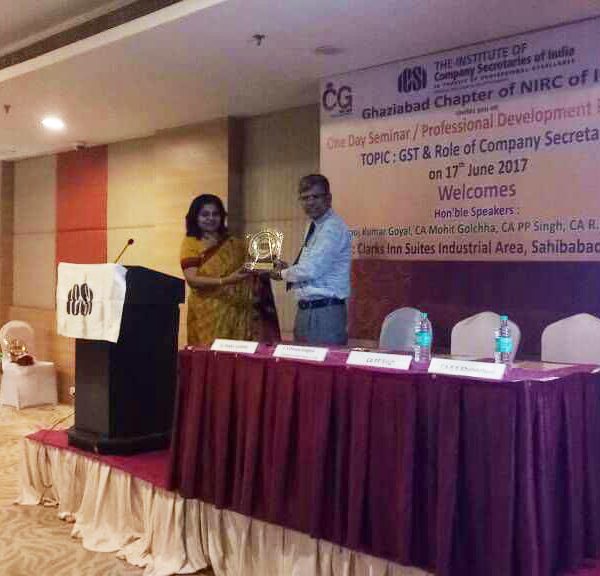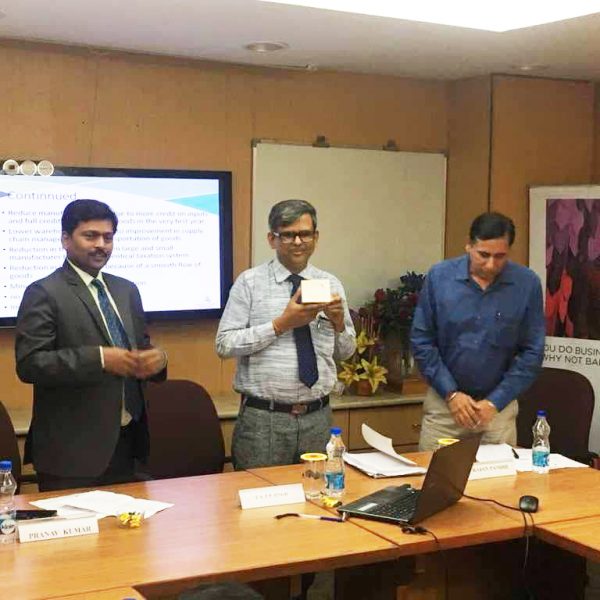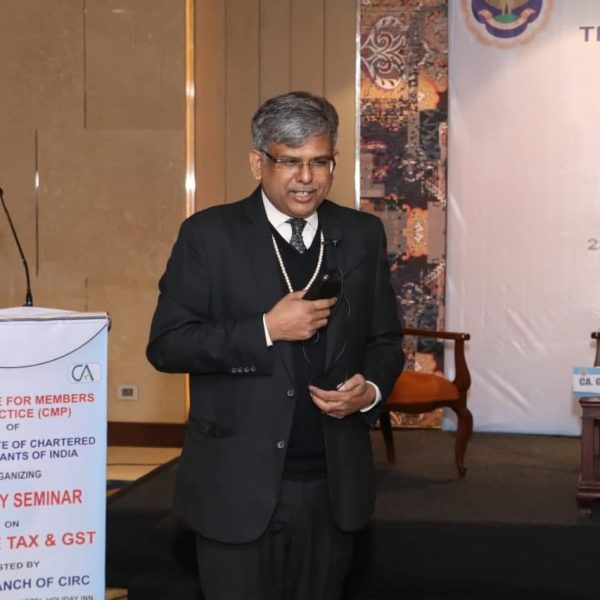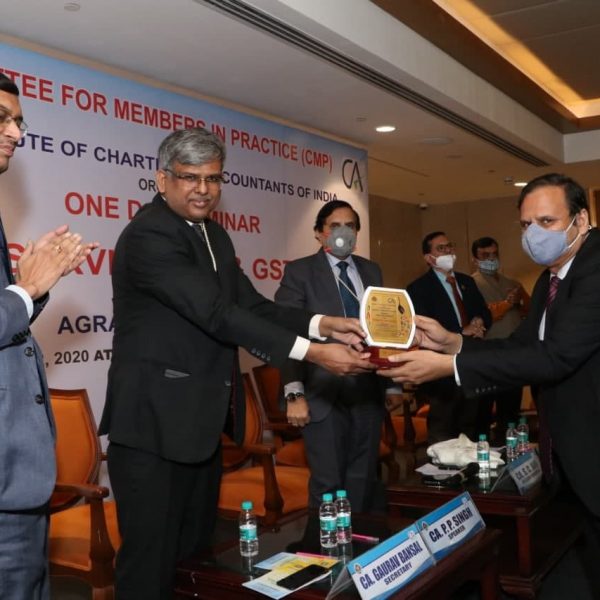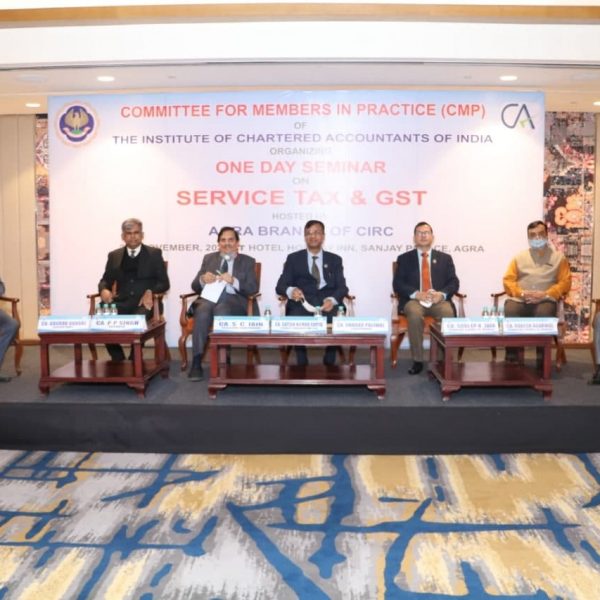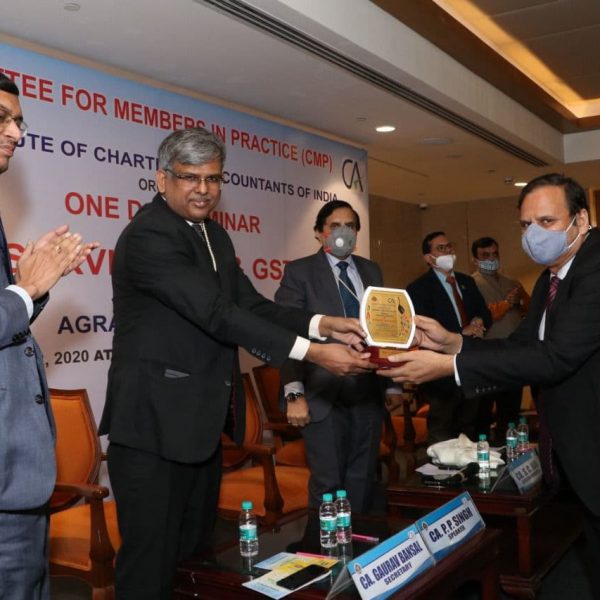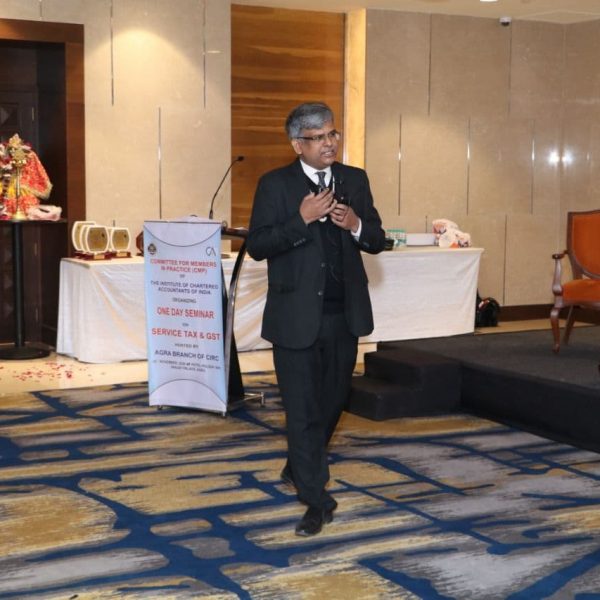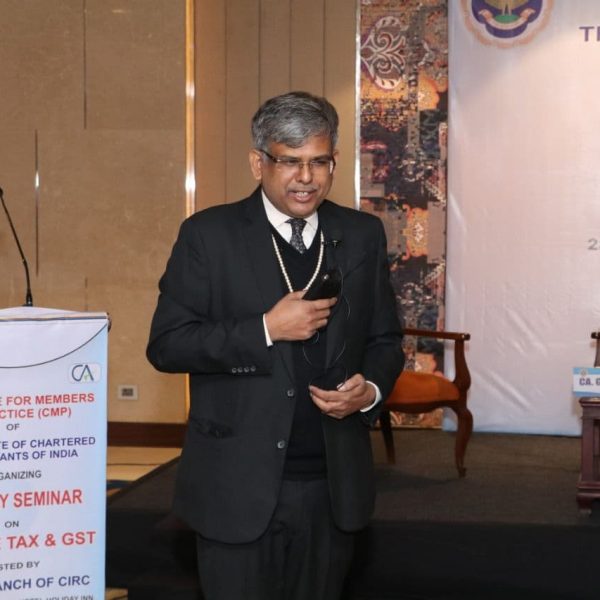What is Assessment? Explain the various types of Assessments under GST.
Meaning of assessment: “Assessment” means the determination of tax liability under this Act and includes self-assessment, re-assessment, provisional assessment, summary assessment, and best judgment assessment; [section 2(11)]
Self-assessment. section 59
- Every registered person shall self-assess the taxes payable under this Act and furnish a return for each tax period as specified under section 39.
- A taxable person must be registered under GST, then only benefit of self-assessment
- registered person shall determine the tax payable on his own
- such a person shall furnish a return for each tax period(“tax period” means the period for which the return is required to be furnished;) may be monthly /quarterly/ yearly, as specified under section 39
- such person shall pay the tax payable as determined by himself. payment either from the ITC ledger or the cash ledger
- no intervention from the GST department
- Collection of tax without any direct involvement of GST officers.
- Most ideal for the government because it will enhance tax collection without any expenditure on collection.
- The details of supply, output tax, input tax credit, tax liability under forward charge and reverse charge, interest for late payment, late fee, etc. shall be reported in the GST return
- Self-assessment is the base of any further course of action. ie scrutiny of return or best judgment
- It will prevent the taxpayer from several consequences in the form of penalty, and prosecutions.
importance of self-assessment
-
- Input tax credit can be availed by a registered person only through self-assessments.
- Every registered person shall, subject to such conditions and restrictions as may be prescribed, be entitled to take the credit of eligible input tax, as self-assessed, in his return and such amount shall be credited on a provisional basis to his electronic credit ledger.[ S-41(1)]
- Input tax credit cannot be availed in the best adjustment assessments or against the demand of tax raised by the GST officers
- So it is very important to make a self-assessment and avail of the input tax credit in the GST return GSTR-3B.
- Further, set-off the input tax credit against the output tax liability Is very important to reduce the net tax liability and minimize the pressure on working capital.
- The credit referred to in sub-section (1) [i.e. input tax credit availed ] shall be utilised only for payment of self-assessed output tax as per the return referred to in the said sub-section.[S-41(1)]
- Input tax credit can be credited to the electronic credit ledger only by way of self assessed return. The input tax credit as self-assessed in the return of a registered person shall be credited to his electronic credit ledger, in accordance with 16 [section 41 or section 43A], to be maintained in such manner as may be prescribed.
Provisional assessment. [section 60]
cases when provisional assessment Allowed: taxable Person unable to value the supply or unable to determine the rate of tax applicable, if requested by taxable Persons & approved by Proper officers on furnishing bond & Surety/ Security
- (1) Subject to the provisions of sub-section (2), where the taxable person is unable to determine the value of goods or services or both or determine the rate of tax applicable thereto, he may request the proper officer in writing in form GST ASMT-01 giving reasons for payment of tax on a provisional basis and the proper officer shall pass an order in form FORM GST ASMT-04, within a period not later than 90 days from the date of receipt of such request, allowing payment of tax on provisional basis at such rate or on such value as may be specified by him.
The time limit for passing the order for provisional assessment -90 days from the date of application.
(2) The payment of tax on a provisional basis may be allowed if the taxable person executes a bond in such form as may be prescribed (FORM GST ASMT-05), and with such surety or security as the proper officer may deem fit, binding the taxable person for payment of the difference between the amount of tax as may be finally assessed and the amount of tax provisionally assessed.
The time limit for passing the final assessment order:
(3) The proper officer shall, within a period not exceeding 6 months from the date of the communication of the order issued under sub-section (1), pass the final assessment order after taking into account such information as may be required for finalizing the assessment:
Extension of time limit for final order – JT/ADDL up to further 6 months, commissioner up to 4 years.
Provided that the period specified in this subsection may, on sufficient cause being shown and for reasons to be recorded in writing, be extended by the Joint Commissioner or Additional Commissioner for a further period not exceeding six months and by the Commissioner for such further period not exceeding four years.
(4) The registered person shall be liable to pay interest on any tax payable on the supply of goods or services or both under provisional assessment but not paid on the due date specified under sub-section (7) of section 39 or the rules made thereunder, at the rate specified under sub-section (1) of section 50, from the first day after the due date of payment of tax in respect of the said supply of goods or services or both till the date of actual payment, whether such amount is paid before or after the issuance of order for final assessment.
(5) Where the registered person is entitled to a refund consequent to the order of final assessment under sub-section (3), subject to the provisions of sub-section (8) of section 54, interest shall be paid on such refund as provided in section 56.
Provisional Assessment [Rule 98]
(1) Every registered person requesting for payment of tax on a provisional basis in accordance with the provisions of sub-section (1) of section 60 shall furnish an application along with the documents in support of his request, electronically in FORM GST ASMT-01 on the common portal, either directly or through a Facilitation Centre notified by the Commissioner.
(2) The proper officer may, on receipt of the application under sub-rule (1), issue a notice in FORM GST ASMT-02 requiring the registered person to furnish additional information or documents in support of his request and the applicant shall file a reply to the notice in FORM GST ASMT – 03, and may appear in person before the said officer if he so desires.
(3) The proper officer shall issue an order in FORM GST ASMT-04 allowing the payment of tax on a provisional basis indicating the value or the rate or both on the basis of which the assessment is to be allowed on a provisional basis and the amount for which the bond in FORM GST ASMT-05 is to be executed and security in the form of a bank guarantee to be furnished not exceeding 25% of the amount covered under the bond.
(4) The registered person shall execute a bond in accordance with the provisions of sub-section (2) of section 60 in FORM GST ASMT-05 along with a security in the form of a bank guarantee for an amount as determined under sub-rule (3): Provided that a bond furnished to the proper officer under the State Goods and Services Tax Act or Integrated Goods and Services Tax Act shall be deemed to be a bond furnished under the provisions of the Act and the rules made thereunder.
Explanation.- For the purposes of this rule, the expression “amount” shall include the amount of integrated tax, central tax, State tax, or Union territory tax and cess payable in respect of the transaction.
(5) The proper officer shall issue a notice in FORM GST ASMT-06, calling for information and records required for the finalization of assessment under sub-section (3) of section 60 and shall issue a final assessment order in FORM GST ASMT-07, specifying the amount payable by the registered person or the amount refundable, if any.
(6) The applicant may file an application in FORM GST ASMT- 08 for the release of the security furnished under sub-rule (4) after issue of the order under sub-rule (5).
(7) The proper officer shall release the security furnished under sub-rule (4), after ensuring that the applicant has paid the amount specified in sub-rule (5) and issue an order in FORM GST ASMT–09 within a period of 7 working days from the date of the receipt of the application under sub-rule (6).
Scrutiny of returns. [section 61+ Rule 99]
- (1) discrepancies notice in FORM GST ASMT-10: The proper officer may scrutinize the return and related particulars furnished by the registered person to verify the correctness of the return and inform him of the discrepancies noticed, if any, in such manner as may be prescribed in FORM GST ASMT-10, and seek his explanation thereto in form GST ASMT-11.
(2) In case the explanation is found acceptable, the registered person shall be informed accordingly in FORM GST ASMT-12 and no further action shall be taken in this regard.
(3) In case no satisfactory explanation is furnished within a period of 30 days of being informed by the proper officer or such further period as may be permitted by him or where the registered person, after accepting the discrepancies, fails to take the corrective measure in his return for the month in which the discrepancy is accepted, the proper officer may initiate appropriate action including those under section 65 ( audit by tax dept.) or section 66(special audit) or section 67(INSPECTION, SEARCH, SEIZURE AND ARREST), or proceed to determine the tax and other dues under section 73 or section 74.
Scrutiny of returns [Rule 99]
(1) Where any return furnished by a registered person is selected for scrutiny, the proper officer shall scrutinize the same in accordance with the provisions of section 61 with reference to the information available to him, and in case of any discrepancy, he shall issue a notice to the said person in FORM GST ASMT-10, informing him of such discrepancy and seeking his explanation thereto within such time, not exceeding thirty days from the date of service of the notice or such further period as may be permitted by him and also, where possible, quantifying the amount of tax, interest and any other amount payable in relation to such discrepancy.
(2) The registered person may accept the discrepancy mentioned in the notice issued under sub-rule (1), and pay the tax, interest, and any other amount arising from such discrepancy and inform the same or furnish an explanation for the discrepancy in FORM GST ASMT-11 to the proper officer.
(3) Where the explanation furnished by the registered person or the information submitted under sub-rule (2) is found to be acceptable, the proper officer shall inform him accordingly in FORM GST ASMT-12.
Assessment of non-filers of returns.[section 62]
- (1) Notwithstanding anything to the contrary contained in section 73 or section 74, where a registered person fails to furnish the return under section 39 or section 45(final return), even after the service of a notice under section 46, the proper officer may proceed to assess the tax liability of the said person to the best of his judgment taking into account all the relevant material which is available or which he has gathered and
- The time limit for such order: PO may issue an assessment order in FORM GST ASMT-13 within a period of 5 years from the date specified under section 44 for furnishing of the annual return for the financial year to which the tax not paid relates.
(2) Where the registered person furnishes a valid return within 60 days of the service of the assessment order under sub-section (1), the said assessment order shall be deemed to have been withdrawn but the liability for payment of interest under sub-section (1) of section 50 or for payment of late fee under section 47 shall continue:
Provided that where the registered person fails to furnish a valid return within 60 days of the service of the assessment order under sub-section (1), he may furnish the same within a further period of 60 days on payment of an additional late fee of Rs. 100 for each day of delay beyond 60 days of the service of the said assessment order and in case he furnishes a valid return within such extended period, the said assessment order shall be deemed to have been withdrawn, but the liability to pay interest under sub-section (1) of section 50 or to pay the late fee under section 47 shall continue.
Rule 100 (1) The order of assessment made under sub-section (1) of section 62 shall be issued in FORM GST ASMT-13 and a summary thereof shall be uploaded electronically in FORM GST DRC-07.
Assessment of unregistered persons( not registered or after registration, it was cancelled by PO u/s29(2). Best Judgment Assessment [section 63]
- Notwithstanding anything to the contrary contained in section 73 or section 74, where a taxable person fails to obtain registration even though liable to do so or whose registration has been cancelled under sub-section (2) of section 29 but who was liable to pay tax, the proper officer may proceed to assess the tax liability of such taxable person to the best of his judgment for the relevant tax periods and issue an assessment order in FORM GST ASMT-15 within a period of 5 years from the date specified under section 44 for furnishing of the annual return for the financial year to which the tax not paid relates:
Provided that no such assessment order shall be passed without giving the person an opportunity of being heard. notice to be issued in FORM GST ASMT-14 containing the grounds on which the assessment is proposed to be made on a best-judgment basis.
Analysis: Best Judgment assessment of non-registered taxable Persons ( liable for registration but not obtained registration or registered but registration cancelled Suo moto by PO under section 29(2), within 5 years from the due date of annual return after providing an opportunity of being heard.
Rule 100 (2) The proper officer shall issue a notice in FORM GST ASMT-14 to a taxable person in accordance with the provisions of section 63 containing the grounds on which the assessment is proposed to be made on best judgment basis and shall also serve a summary thereof electronically in FORM GST DRC-01, and after allowing a time of 15 days to such person to furnish his reply, if any, pass an order of best judgment in FORM GST ASMT-15 and a summary thereof shall be uploaded electronically in FORM GST DRC-07.
Summary assessment in certain special cases [Section 64]:
It is a type of protective assessment, where under to Protect the interest of revenue, the PO with Previous permission of JT / Add. comm, may proceed to assess tax liability if he has sufficient grounds to believe that any delay in doing so may adversely affect the interest of revenue.
If a person is unascertainable, Liability related to goods could be assessed and recovered from the person in – charge of goods. Aggrieved persons with such an order can approach Addl/ JT Comm for withdrawal of such order, accordingly, withdrawal may be allowed and proceedings under section 73 or 74 may be initiated.
- (1) The proper officer may, on any evidence showing a tax liability of a person coming to his notice, with the previous permission of the Additional Commissioner or Joint Commissioner, proceed to assess the tax liability of such person to protect the interest of revenue and issue an assessment order, if he has sufficient grounds to believe that any delay in doing so may adversely affect the interest of revenue:
Provided that where the taxable person to whom the liability pertains is not ascertainable and such liability pertains to the supply of goods, the person in charge of such goods shall be deemed to be the taxable person liable to be assessed and liable to pay tax, and any other amount due under this section.
(2) On an application made by the taxable person within 30 days from the date of receipt of the order passed under sub-section (1) or on his own motion, if the Additional Commissioner or Joint Commissioner considers that such order is erroneous, he may withdraw such order and follow the procedure laid down in section 73 or section 74.
Rule 100
(3) The order of assessment under sub-section (1) of section 64 shall be issued in FORM GST ASMT-16 and a summary of the order shall be uploaded electronically in FORM GST DRC-07.
(4) The person referred to in sub-section (2) of section 64 may file an application for withdrawal of the assessment order in FORM GST ASMT–17.
(5) The order of withdrawal or, as the case may be, rejection of the application under sub-section (2) of section 64 shall be issued in FORM GST ASMT-18.

